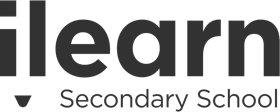
Summer School Overview
Summer school is the perfect time to get ahead, or catch up in your high school courses. Our Summer Session starts in early July and is completed in the second week of August.
- 6-weeks duration (condensed)
- Home-based online format
- Limited seats available
Summer School Courses 2023
The courses below are available for the 2023 Summer Session. Don't see the course you're looking to take this summer? Contact our admin team to see if we can add the course to the summer school course list.
English Language Arts 8
A strong understanding of the English language allows us to communicate better and understand one another with more precision, clarity, and creativity. This course exposes students to literature, language, and social culture. Throughout the course, students will complete various grammar and writing exercises to develop composition skills using the following topics:
- exploring stories to understand self
- understanding texts of international peoples’ world view
- thinking critically about education’s role in life
Science 8
An understanding of scientific principles and theories allows students to better understand our position in the world and our understanding of life. This course provides students with a foundational knowledge in science and scientific methods. Some topics in this course include the following:
- life science
- kinetic molecular theory
- protons and electrons
- plate tectonics
English Language Arts 9
Prerequisite: English 8
A strong understanding of the English language allows us to communicate better and understand one another with more precision, clarity, and creativity. This course exposes students to literature, language, and social culture. Throughout the course, students will complete various grammar and writing skills exercises to develop composition skills using the following topics:
- literary devices
- reading strategies
- elements of style
- writing processes
Social Studies 9
Prerequisite: Social Studies 8
Understanding where we came from provides us with perspective on how far society has progressed and the political systems we have developed over time. This course is intended to help students understand the progress of civilization through the ages starting in the year 1750 to 1919. Topics in the course include the following:
- political, social, economic, and technological revolutions
- imperialism and colonialism, and their continuing effects on indigenous peoples in Canada and around the world
- global demographic shifts, including patterns of migration and population growth
- nationalism and the development of modern nation-states, including Canada
- local, regional, and global conflicts
- discriminatory injustices such as the Head Tax, the Komagata Maru, residential schools, and World War I internment
- physiographic features and natural resources in Canada
Foundations of Math & Precalculus 10
Prerequisite: Mathematics 9
Preparation for numeracy 10 assessment
The more math you take, the more money you make. This old saying often rings true because a strong foundation in mathematics prepares students for careers in science, technology, and engineering among other important professions. This course covers concepts of algebra, geometry, and the following key mathematical concepts:
- operations on powers with integral exponents
- prime factorization
- functions and relations: connecting data, graphs, and situations
- linear functions: slope and equations of lines
- arithmetic sequences
- systems of linear equations
- multiplication of polynomial expressions
- polynomial factoring
- primary trigonometric ratios
- financial literacy: gross and net pay
Social Studies 10
Prerequisite: Social Studies 9
Understanding where we came from provides us with perspective on how far society has progressed and the political systems we have developed over time. This course is intended to help students understand the progress of Canada as a nation through the years 1914 to present day. Topics in the course include the following:
- government, First Peoples governance, political institutions, and ideologies
- environmental, political, and economic policies
- Canadian autonomy
- Canadian identities
- discriminatory injustices such as the Head Tax, the Komagata Maru, residential schools, and World War I internment
- advocacy for human rights, including findings of the Truth and Reconciliation Commission
- domestic conflicts and cooperation
- international conflicts and cooperation
Composition 11
Prerequisite: English 10
A strong understanding of the English language allows us to communicate better and understand one another with more precision, clarity, and creativity. In this course students refine, clarify, and adjust their written communication through practice and revision. Students will be required to complete the following:
- read and study compositions by other writers and be exposed to a variety of styles as models
- study, create, and write original and authentic pieces for a range of purposes
- expand their competencies through processes of drafting, reflecting, and revising to build a body of work
- cite sources, consider the credibility of evidence, and evaluate the quality and reliability of the source
The following are possible areas of focus within Composition 11:
- narrative, expository, descriptive, persuasive, and opinion pieces
- planning, drafting, and editing processes
- writing for specific audiences and specific disciplines
Journalism 11 (New Media 11)
Prerequisite: English 10
Develop strong writing, critical thinking, and research skills to perform interviews and write influential pieces, such as articles and blog posts. Learn to use modern technologies to aide your writing and add visuals to add more context to events.
Foundations of Math 11
Prerequisite: Math 10
This course covers concepts of proportional relationships that can be described, measured, and compared. Student will learn the following key mathematical concepts in this course:
- forms of mathematical reasoning
- angle relationships
- graphical analysis:
- linear inequalities
- quadratic functions
- systems of equations
- optimization
- applications of statistics
- scale models
- financial literacy: compound interest, investments and loans
Life Sciences 11
Prerequisite: Science 10
The study of small things often leads to big conclusions. Understanding our bodies from the cellular perspective allows us to explore the interactions of certain cells in different environments. Students are expected to be taught the following:
- cell structure and function
- sexual and asexual reproduction
- energy transformations in cells
- viruses
- First Peoples understandings of interrelationships between organisms adaptation to changing environments
- changes in DNA
- natural selection
- artificial selection and genetic modifications
- single-celled and multi-celled organisms
Physics 11
Prerequisite: Science 10 & Math 10
Only available in Digital Learning (DL) format.
Physics is the study of nature and properties of matter and energy and has a strong mathematics component for making calculations in the following areas:
- projectile motion
- motion, mass, force of gravity, and apparent weight
- Newton’s laws of motion and free-body diagrams
- balanced and unbalanced forces in systems
- conservation of energy; principle of work and energy
- power and efficiency
- simple machines and mechanical advantage
- applications of simple machines by First Peoples
- electric circuits (DC), Ohm’s law, and Kirchhoff’s laws
- thermal equilibrium and specific heat capacity
- properties and behaviours of waves
- characteristics of sound
English Studies 12
Prerequisite: English 11
Preparation for literacy 12 assessment
The required English Studies 12 course builds on and extends students’ previous learning experiences and is designed for all students. In the course students will work on the following:
- refine their ability to communicate effectively in a variety of contexts and to achieve their personal and career goals
- think critically and creatively about the uses of language
- explore texts from a variety of sources, in multiple modes, and that reflect diverse worldviews
- deepen their understanding of themselves and others in a changing world
- gain insight into the diverse factors that shape identity
- appreciate the importance of self-representation through text
- contribute to Reconciliation by building greater understanding of the knowledge and perspectives of First Peoples
- expand their understanding of what it means to be educated Canadian and global citizens
Calculus 12
Prerequisite: Mathematics 12 – Pre-Calculus
Only available in Digital Learning (DL) format.
The more math you take, the more money you make. This old saying often rings true because a strong foundation in mathematics prepares students for careers in science, technology, and engineering among other important professions. In this course, students cover the following concepts:
- functions and graphs
- left and right limits
- limits to infinity
- continuity
- rate of change
- differentiation rules
- approximations
- fundamental theorem of calculus
- methods of integration
Chemistry 12
Prerequisite: Chemistry 11
Reactions occur everyday among the elements that surround us. A strong background in Chemistry allows students to understand interactions at the molecular level and use that knowledge anywhere from food processing, energy, and countless other areas. By the end of the course, students should have an understanding of the following:
- reaction rate
- collision theory
- energy change during a chemical reaction
- Le Châtelier’s principle and equilibrium shift
- equilibrium constant (Keq)
- saturated solutions and solubility product (Ksp)
- relative strength of acids and bases in solution
- hydrolysis of ions in salt solutions
- applications of acid-base reactions
- the oxidation-reduction process
- electrochemical cells
- electrolytic cells
Math 8
The more math you take, the more money you make. This old saying often rings true because a strong foundation in mathematics prepares students for careers in science, technology, and engineering among other important professions. This course covers concepts of algebra, geometry, and the following key mathematical concepts:
- ratios, rates, percents & fractions
- linear relationships
- 3D object calculations
- analyzing data
- Pythagoras theorem
Social Studies 8
Understanding where we came from provides us with perspective on how far society has progressed and the political systems we have developed over time. This course is intended to help students understand the progress of civilization through the ages starting in the 7th century to the year 1750. Topics in the course include the following:
- social, political, and economic systems and structures, including those of at least one indigenous civilization
- scientific and technological innovations
- philosophical and cultural shifts
- interactions and exchanges of resources, ideas, arts, and
- culture between and among different civilizations
- exploration, expansion, and colonization
- changes in population and living standards
Math 9
Prerequisite: Math 8
The more math you take, the more money you make. This old saying often rings true because a strong foundation in mathematics prepares students for careers in science, technology, and engineering among other important professions. This course covers concepts of algebra, geometry, and the following key mathematical concepts:
- financial literacy
- statistics
- comparative measurement (e.g., linear, mass, capacity)
- single attributes of 2D shapes and 3D objects
- concrete or pictorial graphs as a visual tool
Science 9
Prerequisite: Science 8
An understanding of scientific principles and theories allows students to better understand our position in the world and our understanding of life. This course provides students with a foundational knowledge in science and scientific methods. Some topics in this course include the following:
- sexual and asexual reproduction
- periodic table
- electricity
- sustainability of systems
- first peoples principles of interconnectedness
Composition & Literary Studies 10
Prerequisite: English 9
Preparation for literacy 10 assessment
Read and study compositions by other writers and practice a variety of styles, varied structures, and writing forms. This course is the final recommended course before taking the literacy assessment. The course is broken down into two main sections: Composition and Literary Studies.
COMPOSITION 10 (2 credits)
- narrative, expository, descriptive, persuasive, and opinion pieces
- planning, drafting, and editing processes
- writing for specific audiences and specific disciplines
- how to cite sources, consider the credibility of evidence, and evaluate the quality and reliability of the source
LITERARY STUDIES 10 (2 credits)
- genre-specific studies—poetry, short stories, novels, drama, graphic novels, children’s literature
- Canadian literature
- First Peoples texts
- thematic studies
- specific author studies
Science 10
Prerequisite: Science 9
An understanding of scientific principles and theories allows students to better understand our position in the world and our understanding of life. This course provides students with a foundational knowledge in science and scientific methods. Some topics in this course include the following:
- DNA structure and function
- mutation and its impact on evolution
- natural selection and artificial selection
- applied genetics and ethical considerations
- acid-base chemistry
- law of conservation of mass
- energy change during chemical reactions
- nuclear energy and radiation
- transformation of energy
- formation of the universe
Literary Studies 11
Prerequisite: English 10
Imagination helps us perceive truth, make value judgments, and deal with life’s complexities in creative ways. Students in this course pick one of three options: Gothic Literature, The Lord of the Rings, or Mythology and Folklore.
Pre-Calculus 11
Prerequisite: Math 10
The more math you take, the more money you make. This old saying often rings true because a strong foundation in mathematics prepares students for careers in science, technology, and engineering among other important professions. This course is a continuation of the pre-calculus course where students build on the connections between operations, powers, radicals, and polynomials. This mathematics course covers the following areas:
- powers with rational exponents
- radical operations and equations
- polynomial factoring
- rational expressions and equations
- quadratic functions and equations
- linear and quadratic inequalities
- trigonometry: non-right triangles and angles in standard position
- financial literacy: compound interest, investments, loans
Workplace Math 11
Prerequisite: Math 10
How mathematics informs life decisions and financial decision making. This course has a focus on 3D models and relationships including the following:
- financial literacy: personal investments, loans, and budgeting
- rate of change
- how probability and statistics are used in different contexts
- interpreting graphs in society
- 3D objects: angles, views, and scale diagrams
Chemistry 11
Prerequisite: Science 10
An understanding of scientific principles and theories allows students to better understand our position in the world and our understanding of life. This course provides students with concepts in chemistry and chemical reactions. Some topics in this course include the following:
- quantum mechanical model and electron configuration
- valence electrons and Lewis structures
- chemical bonding based on electronegativity
- bonds/forces
- organic compounds
- applications of organic chemistry
- the mole
- dimensional analysis
- reactions
- stoichiometric calculations using significant figures
- local and other chemical processes
- green chemistry
- solubility of molecular and ionic compounds
- stoichiometric calculations in aqueous solutions
Explorations in Social Studies 11
Prerequisite: Social Studies 10
Understanding where we came from provides us with perspective on how far society has progressed and the political systems we have developed over time.Explorations in Social Studies 11 is designed to provide flexibility for teachers and students while ensuring that the rigorous provincial curriculum standards are met. Topics in the course may include the following (3 topics required):
- social, cultural, or technological innovations and developments in the 20th century
- colonialism and contemporary issues for indigenous people in Canada and around the world
- current issues in local, regional, national, or global politics as represented in mass media
- natural resource use and local, regional, national, or global development
- economic development in Asia
- systems of power and governance in global cultures
- diversity of B.C. First Peoples territories and communities
- methods used by individuals, groups, and organizations to promote social justice
- fundamental nature of knowledge, existence, and reality
- sacred texts, traditions, and narratives of cultures
- recognition of and responses to genocide
- global issues in urbanization
- contemporary theories of money and investment
Pre-Calculus 12
Prerequisite: Pre-Calculus 11
The more math you take, the more money you make. This old saying often rings true because a strong foundation in mathematics prepares students for careers in science, technology, and engineering among other important professions. In this course students will be taught the following topics:
- transformations of functions and relations
- exponential functions and equations
- geometric sequences and series
- logarithms: operations, functions, and equations
- polynomial functions and equations
- rational functions
- trigonometry: functions, equations, and identities
Anatomy & Physiology 12
Prerequisite: Science 10
Students will learn about the structure, function, and interrelation between the lymphatic, immune, respiratory, digestive, urinary, and the endocrine systems. The reproductive system is also discussed along with hereditary traits and genetics. Finally, students will explore the importance of accurate patient documentation as well as technology used in the industry.
Course Highlights
- explore the structure and function of body systems and how they work together
- discover what can go wrong with the body systems
- investigate the skills for assessing health and documenting the data while protecting the privacy of patients
- explore today’s health professions while appreciating how earlier contributions have made healthcare what it is today
Physics 12
Prerequisite: Physics 11
Only available in Digital Learning (DL) format.
An understanding of scientific principles and theories allows students to better understand our position in the world and our understanding of life. Putting physics to use is a rewarding experience as students can conduct simple experiments and add further clarity to how objects and waves move around us. This course will cover some of the following topics:
- relative motion within a stationary reference frame
- postulates of special relativity
- uniform circular motion
- First Peoples knowledge and applications of forces in traditional technologies
- gravitational field and Newton’s law of universal gravitation
- gravitational potential energy
- gravitational dynamics and energy relationships
- electric field and Coulomb’s law
- electric potential energy, electric potential, and electric potential difference
- electrostatic dynamics and energy relationships
- magnetic field and magnetic force
- electromagnetic induction
- conservation of momentum and energy in collisions
- graphical methods in physics
Key Points to Know
Where can I find iLearn’s Summer School tuition rates?
Please see our Tuition page for the most up-to-date tuition information.
What makes summer school courses different?
The Summer Session is a 6-week time where students complete a condensed version of the course. It’s offered from July-Aug every year. Although iLearn students can take courses at any time, the Summer Session has a set start and end date.
When do courses start and end?
The 2021 Summer Session starts on Monday, July 5th and is completed on Friday, August 13th.
How many summer courses can I take?
It is recommended that a student only take one course, however a student can enroll in a maximum of two courses in the 6-week Summer Session.
When is the deadline to register for summer courses?
The cutoff for summer enrollment is the first week of July each year. It is recommended that students check their eligibility and apply many weeks prior to this date to save a seat in the course.
Will my other school know that I took this course?
Yes, we will send your grades/report card to your home school if we are not your school of record. Report cards for the Summer Session are sent at the end of August.
When are marks updated on my transcript?
Only grade twelve students will have their grade on their transcript immediately in August. For students in other grades, the mark will not appear on the transcript until the following report card period. Please let your teacher know if you have any admission deadlines that need to be met.
Can I take your online courses and still stay at my existing school?
Yes, students are welcome to cross-enroll with us and either take a couple courses or take all their courses with us as their home school. If you have any concerns, speak with our admin team at 604-590-5504.
How do I meet with my teacher?
All meetings with teachers will be held via video conferencing (Similar to Zoom/Microsoft Teams/Google Meet). Students will be able to access meetings with the links emailed to them. Students can sign up for office hours using their teacher’s scheduling link. This can be found in their teacher’s email signature.
Can I improve my course grade after completing a course?
Course upgrading can be provided for students who receive 80% or higher in their course. Course upgrading is an opportunity to improve a course grade by completing additional course work typically to meet university admission requirements. Head to our Course Upgrades page for more information.
How to Get Started
First, we need to know if you are eligible for your courses. Eligible students will be emailed with application steps to complete. Once all steps are completed, each student will be invited to an orientation with their teacher.
Eligibility
Submit your eligibility information online.
Application
Follow steps provided in your eligibility email.
Orientation
Meet your teacher and start the course.

iLearn was wonderful. The staff is wonderful and I couldn't think of any one negative thing to say about iLearn. My son needed to be pushed a little bit so if the student or parents stay on top of things, it's really good for kids who really want to succeed. If your student is having trouble in school or wants to get ahead, iLearn is way more accommodating and understanding of your needs.
Ms. Johal
Parent
